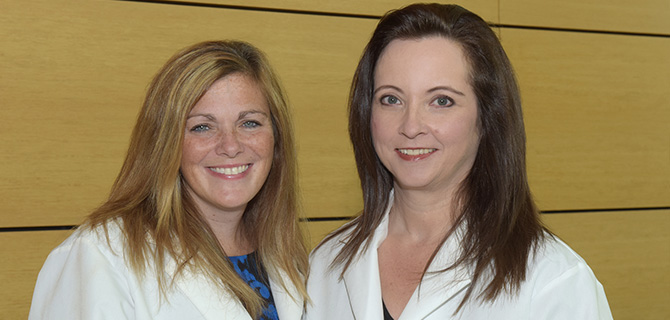The following instructions consist of dos and don'ts to help you recovery after your surgery. These guidelines are not meant as rigid rules, but as suggestions coming from our experience with patients whom we have discharged from the hospital over the years. As a general rule, common sense is a good guideline. For example, there is no reason why you cannot walk up and down stairs, even if you have to take a rest in the middle.
The basic rule is: do what feels good and comfortable. This particularly holds true for the amount of daily walking, which is strongly suggested. Everybody is different and comes to surgery with a different set of lung functions. This will dictate how much a person can walk after surgery.
Dos
- Shower daily and wash incision and drain sites. Use Ivory soap. Let the water stream run over the incision and drain sites. Leave the incisions uncovered. Where the chest tubes used to be, the drain sites may drain for several days, and therefore may need a Band-Aid. Wear comfortable, clean clothing. Particularly suitable is cotton clothing, especially if drainage is still an issue.
- Walk as much as you feel able to. Stop when you are short of breath, rest, and then continue. You may not see a daily increase, but over a week's time you should see an increase in the distance that you are able to walk. Fatigue and tiredness are expected. It is entirely normal that you may have to take a nap in the morning or in the afternoon. Avoid spending prolonged periods of time lying down during the daytime hours.
- Eat foods you find appealing. You may find that your appetite is not nearly as good as it was before you had your surgery. This is entirely normal. You may eat smaller portions and you may increase the frequency of your meals. We suggest that you weigh yourself twice a week and that you keep a record of your weight. If you notice that you gain 2-3 pounds over a 24- to 48-hour period, call us because you may be retaining water. It is normal to lose up to 10% of your weight after surgery. Patients often notice that their appetite has changed, as well as their taste buds. This is also normal.
- As long as you are taking pain medication, particularly narcotics, you should consider taking a stool softener or laxative. These medications have a tendency to render one constipated, which may lead to a vicious cycle where one feels constipated and nauseated with an increase in pain.
- Do take your pain medications as needed. In the beginning, you should take your medications on a regular basis as they were prescribed. Often, you receive two types of pain medication, one of which should be taken constantly to produce a steady level of analgesia (pain relief). The other medication is given for "breakthrough" pain or the peaks, which you take as needed depending on your daily activities.
Remember, a good night's sleep is worth a lot and makes the next day much easier. Therefore, taking a pain medication at the time one goes to bed is a reasonable approach.
Don'ts
- If you were a smoker, do not restart. If your environment-your apartment or house-still contains curtains, linens, and furniture full of smoke and tobacco odor that can give you the urge to smoke again, please have them cleaned. The overwhelming majority of people who develop lung cancer in the United States do so because of smoking. If you have difficulty stopping your smoking habit, or if you live with family members or house-partners who smoke, please call us and we can help you through a smoking cessation program.
- Do not lift anything heavier than 10 pounds for about 4-6 weeks. Remember that your recovery overall takes about 10-12 weeks.
- Do not drive until your surgeon says that you can. Generally, at about 3 weeks you will be allowed to drive locally.
* * *
If you have any concerns or questions, call us at 631-444-2981. If, by chance, none of the people that you met during your hospital stay answer, and you are connected with HealthConnect, they will be able to direct your call to one of the team members-namely, Sunday, or April-and they will get back to you shortly.


